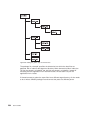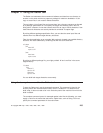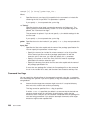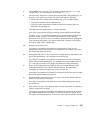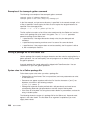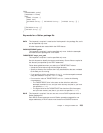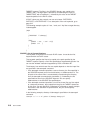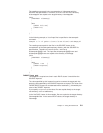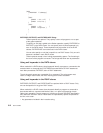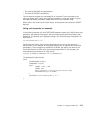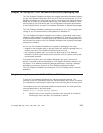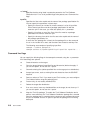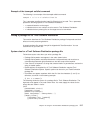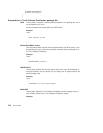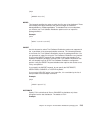(DATA
(TARGETROOT f:\demoapp )
.
.
(RULE
(SOURCE *.bin *.dll )
(TARGET bin\files )
)
(RULE
(SOURCE *.hlp )
(TARGET targetroot )
)
.
.
)
EXITPRIOR, EXITPOST, and EXITREPLACE String...
These keywords are optional. They specify a user exit program to run as part
of the gather operation.
To specify an exit that is global to the Gather operation, specify EXITPRIOR or
EXITPOST in the DATA clause. You can specify each of these keywords only
once in the DATA clause. These keywords must come after all of the RULE
clauses. EXITREPLACE cannot be used in the DATA clause.
You can also specify an exit that is specific to one RULE clause. Only one exit
keyword is allowed in each RULE clause.
These keywords accept a list of strings separated by spaces. The first string is
the name of the program to execute. The strings that follow are its parameters.
Using exit keywords in the DATA clause
When used within a DATA clause, these keywords identify a program or command to be
executed within a command shell. EXITPRIOR executes before all RULE statements
have been processed; EXITPOST, after all RULE statements.
The exit keywords accept any executable file or command. The exit program must
return an integer return value, with zero meaning the exit was successful.
Using exit keywords in the RULE clause
EXITPRIOR, EXITPOST, and EXITREPLACE are optional within a RULE clause. Only
one can be specified in any given RULE clause.
When used within a RULE clause, these keywords identify a program or command to
be executed within a command shell before, after, or in place of processing of each
Gather copy operation. The exit program is called once for each SOURCE specification
entry within the SOURCE clause. Parameters are separated by spaces and passed to
the exit in this order:
v Any parameters included in the invocation string
212 User’s Guide



